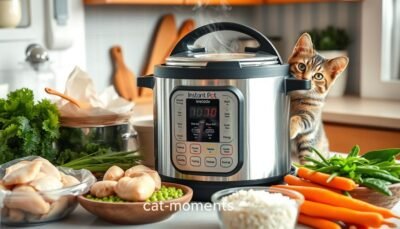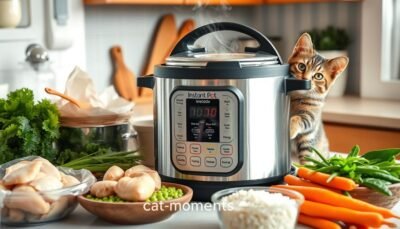Finding the perfect Bengal cat breeder is a big task. These exotic cats have won many hearts in the United States. This has led to a high demand for good Bengal cat breeders near me.
Choosing a reputable Bengal cat breeder is more than just getting a pet. It’s about getting a healthy, quality cat with a good background. A good breeder gives you a cat that is well-socialized and has a documented history.
Bengal cats are known for their wild-looking coats and smart nature. People looking to own one should spend time finding professional breeders. These breeders should focus on breeding standards and animal care.
Key Takeaways
- Research is crucial when selecting a Bengal cat breeder
- Look for breeders with transparent health certifications
- Understand the unique needs of Bengal cats
- Verify breeder credentials and reputation
- Prepare for the investment of owning a premium breed
Understanding Bengal Cats: A Unique and Exotic Breed
Bengal cats are a mix of wild beauty and loving companions. They come from special breeding programs. This makes them popular pets for many people.

These cats are different from regular pets. They are a mix of domestic cats and Asian leopard cats. This brings a wild touch to their homes.
Physical Characteristics and Personality Traits
Bengal cats have a unique look:
- Leopard-like spotted or marbled coat patterns
- Muscular, athletic body structure
- Striking green or gold eyes
- Weight range: 8-15 pounds
They are also known for their:
- High intelligence
- Playful and energetic nature
- Strong social bonds with family members
- Curiosity and love for interactive play
Health Considerations for Bengal Cats
It’s important to know about health issues in Bengal cats:
| Health Concern | Description | Prevention |
|---|---|---|
| Hypertrophic Cardiomyopathy | Heart muscle condition | Regular veterinary screenings |
| Progressive Retinal Atrophy | Genetic eye disorder | Genetic testing |
| Digestive Sensitivities | Potential dietary challenges | High-quality nutrition |
Bengal Cat Generation Classifications
Knowing about generation classifications is key for owners:
- F1-F2: Closer to wild ancestry, more exotic traits
- F3-F4: More domesticated, balanced temperament
- F5: Fully domesticated, ideal family companions
“Bengal cats are not just pets; they’re a living piece of the wild brought into your home.” – Feline Genetics Expert
Finding Reputable Bengal Cat Breeders in Your Area
Finding a good Bengal cat breeder takes time and effort. The right one can ensure your new kitten is healthy and well-adjusted. This makes them a loving part of your family.

- Online breed-specific directories
- Bengal cat breed associations
- Veterinarian recommendations
- Local cat show networks
When checking out breeders, do your homework. Look at Bengal cat breeder reviews closely. Focus on:
- Customer testimonials
- Health guarantee documentation
- Breeding facility conditions
- Genetic testing practices
“A great breeder is transparent about their breeding practices and welcomes your questions.” – Professional Cat Breeder Association
Online tools can help find good Bengal cat breeders. Social media, forums, and professional websites share valuable info. They give you a peek into a breeder’s reputation.
| Search Platform | Effectiveness Rating | Key Benefits |
|---|---|---|
| Facebook Groups | 4/5 | Direct breeder interactions |
| Breed Association Websites | 5/5 | Verified breeder credentials |
| 3/5 | Visual breeding evidence |
Pro tip: Always schedule an in-person visit to verify the breeder’s environment and meet the kittens’ parents before making a commitment.
What to Look for in a Professional Bengal Cat Breeder
Finding the right Bengal cat breeder is key to getting a healthy, social kitten. Good breeders do more than just raise cats. They focus on health, temperament, and genetics of these unique felines.
When looking at Bengal cat breeding programs, there are important things to check. These help you tell the best breeders from those who are just starting out.
Essential Questions to Ask Your Breeder
- Are you registered with TICA (The International Cat Association)?
- What genetic health testing do you perform on your breeding cats?
- Can you provide documentation of health clearances?
- How do you socialize your Bengal kittens?
- What generation of Bengal cats do you breed?
Red Flags to Watch Out For
Good Bengal cat breeders are open and honest about their practices. Look out for these signs of trouble:
- Unwillingness to show breeding facility
- No health guarantees
- Multiple litters available simultaneously
- Lack of vaccination or medical records
- Refusal to answer detailed questions
Understanding Breeding Programs and Standards
Professional Bengal cat breeding programs stick to strict rules for the best kittens. Reputable breeders focus on:
| Breeding Aspect | Professional Standard |
|---|---|
| Genetic Screening | Comprehensive genetic health testing |
| Socialization | Early human interaction and environmental exposure |
| Breeding Selection | Careful genetic line management |
“A great Bengal breeder is not just selling a cat, but providing a lifelong companion with exceptional genetic and behavioral qualities.” – Feline Genetics Expert
Spending time to learn about Bengal cat breeder requirements helps you find a responsible, ethical breeder. They are dedicated to raising healthy, well-adjusted kittens.
Bengal Cat Pricing and Investment Considerations
Buying a Bengal cat is a big financial step. The price can range from $1,500 to $5,000. This depends on several important factors. It’s key to understand the cost of these unique cats.
- Breed generation (F1-F4 cats are more expensive)
- Coat quality and unique markings
- Breeder reputation and certification
- Pedigree and bloodline
When thinking about getting a Bengal cat, remember to budget more than the initial cost. The total cost includes:
- Initial kitten cost
- Veterinary checkups
- Specialized diet
- High-quality accessories
- Potential healthcare expenses
“A well-bred Bengal is an investment in a companion, not just a pet purchase.”
The initial price might seem high, but buying from a reputable breeder is worth it. Cheap options can hide health or behavior problems. These can lead to higher costs over time.
When planning your Bengal cat’s expenses, remember these ongoing costs:
- Annual veterinary care
- Premium nutrition
- Enrichment toys
- Potential genetic health screenings
Conclusion
Finding the right Bengal cat breeder is more than just a transaction. It’s a big step towards getting a lifelong friend. You need to do your homework, ask the right questions, and learn about the breed’s special traits.
When looking for a Bengal cat breeder, focus on those who are open and honest. They should show you health checks and care deeply for the breed. Good breeders will share all the important health and socialization details of their kittens.
Your journey with a Bengal cat starts with making smart choices. Learn about breeding standards, ask important questions, and check their credentials. This way, you’ll have a better chance of getting a healthy and happy Bengal.
Getting the right Bengal cat is about doing your research, being patient, and connecting with the right breeder. Listen to your gut, put the cat’s needs first, and be thoughtful in your search.
FAQ
How much does a Bengal cat typically cost from a reputable breeder?
Bengal cat prices vary from
FAQ
How much does a Bengal cat typically cost from a reputable breeder?
Bengal cat prices vary from $1,500 to $5,000. This depends on the cat’s generation, coat quality, and lineage. Show-quality Bengals or those with rare colors can cost more. F1 and F2 Bengals are usually the priciest.
What should I look for when choosing a Bengal cat breeder?
Look for breeders who offer health certifications and allow visits to their cattery. They should provide genetic testing and be open about their breeding practices. Make sure they are registered with TICA and offer health guarantees and socialization for kittens.
What are the different Bengal cat generations?
Bengal cat generations range from F1 to F5. F1 cats are the first cross between an Asian leopard cat and a domestic cat. F2 cats are the offspring of F1 Bengals. F3 to F5 cats are more domesticated and better suited as pets.
What health issues are common in Bengal cats?
Bengal cats may face hypertrophic cardiomyopathy, progressive retinal atrophy, and genetic disorders. Good breeders screen for these and provide health clearances to reduce risks.
How can I verify a Bengal cat breeder’s reputation?
Check for TICA registration and read online reviews. Ask for references and look at their social media and website. Also, check local cat associations and ask for vet recommendations.
Are Bengal cats good family pets?
Bengal cats are active, smart, and social. They need lots of interaction, mental games, and toys. They’re great for families who can give them lots of attention and play.
What documents should a reputable Bengal cat breeder provide?
A good breeder should give you health certificates, vaccination records, and genetic testing results. They should also provide pedigree documents, TICA papers, a spay/neuter agreement, and a health guarantee.
How do I prepare my home for a Bengal kitten?
Get vertical spaces and climbing areas, and lots of interactive toys. Secure breakable items and set up a play and rest area. Buy scratching posts and make sure your home is safe and fun for your kitten.
What is the average lifespan of a Bengal cat?
Bengal cats live 12-16 years with proper care. Good food, vet visits, and a fun indoor life are key. Their diet and care can affect how long they live.
Can Bengal cats be kept as indoor pets?
Yes, Bengal cats are best indoors. They’re too energetic and curious for the outdoors. Indoor life keeps them safe and happy.
,500 to ,000. This depends on the cat’s generation, coat quality, and lineage. Show-quality Bengals or those with rare colors can cost more. F1 and F2 Bengals are usually the priciest.
What should I look for when choosing a Bengal cat breeder?
Look for breeders who offer health certifications and allow visits to their cattery. They should provide genetic testing and be open about their breeding practices. Make sure they are registered with TICA and offer health guarantees and socialization for kittens.
What are the different Bengal cat generations?
Bengal cat generations range from F1 to F5. F1 cats are the first cross between an Asian leopard cat and a domestic cat. F2 cats are the offspring of F1 Bengals. F3 to F5 cats are more domesticated and better suited as pets.
What health issues are common in Bengal cats?
Bengal cats may face hypertrophic cardiomyopathy, progressive retinal atrophy, and genetic disorders. Good breeders screen for these and provide health clearances to reduce risks.
How can I verify a Bengal cat breeder’s reputation?
Check for TICA registration and read online reviews. Ask for references and look at their social media and website. Also, check local cat associations and ask for vet recommendations.
Are Bengal cats good family pets?
Bengal cats are active, smart, and social. They need lots of interaction, mental games, and toys. They’re great for families who can give them lots of attention and play.
What documents should a reputable Bengal cat breeder provide?
A good breeder should give you health certificates, vaccination records, and genetic testing results. They should also provide pedigree documents, TICA papers, a spay/neuter agreement, and a health guarantee.
How do I prepare my home for a Bengal kitten?
Get vertical spaces and climbing areas, and lots of interactive toys. Secure breakable items and set up a play and rest area. Buy scratching posts and make sure your home is safe and fun for your kitten.
What is the average lifespan of a Bengal cat?
Bengal cats live 12-16 years with proper care. Good food, vet visits, and a fun indoor life are key. Their diet and care can affect how long they live.
Can Bengal cats be kept as indoor pets?
Yes, Bengal cats are best indoors. They’re too energetic and curious for the outdoors. Indoor life keeps them safe and happy.






